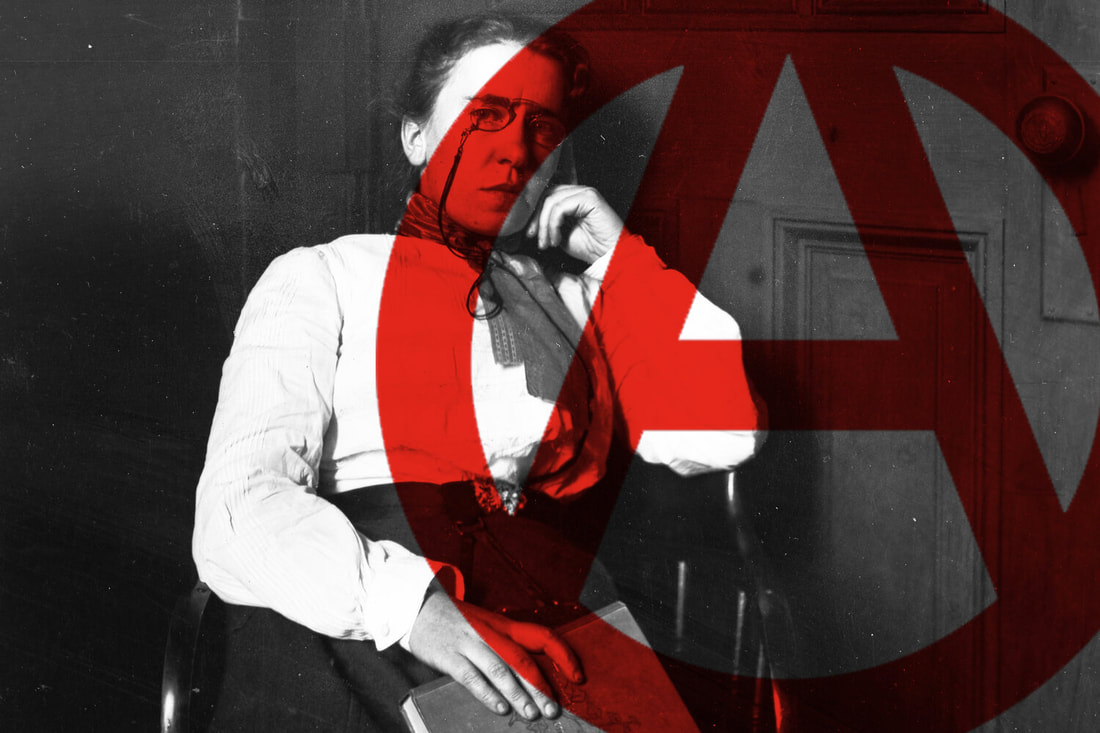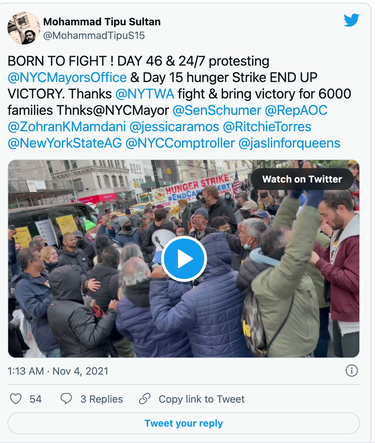|
The Nicaraguan presidential elections were held on November 7th, 2021. There were seven ballot options for the North and South Caribbean Coast Autonomous Regions: the Constitutionalist Liberal Party, Independent Liberal Party, Alliance for the Republic, Nicaraguan Christian Way, Nicaraguan Liberal Alliance Party, Yapti Tasba Masraka Nanih Aslatakanka Party (regional opposition party for the Carribean Coast), and the FSLN Front/Sandinista Alliance (led by Daniel Ortega). The voter turnout was about 65%, with 75% of those votes going to the Sandinista Coalition. These numbers have matched that of previous elections such as in 2016 the FSLN received 72% of the votes with a 68% voter turnout according to the Organization for American States (OAS) and in 2011 the Sandinistas received 62% of the votes according to the Carter Center. There were also more than two hundred foreign election observers from more than 27 countries and 67 of these people were also journalists. However, despite these signs of a normal functioning democracy, American and European media have decried these elections as unfair and Ortega a dictator. They allege that Ortega has imprisoned opposition candidates and banned foreign observers. It’s true that Ortega is running for his fourth term. However, it’s also important to remember that term limits aren’t very common outside the United States. Even then, the cap on term limits only became established in the United States after 1951 with the passage of the 22nd Amendment. Franklin Roosevelt won the presidency four times, yet no one would call him a dictator, in fact he is one of America’s most beloved presidents. Angela Merkel, in Germany, also served for more than fifteen years as Chancellor of Germany, yet no one is calling Germany a dictatorship. Ortega maintains a strong base of support among the Nicaraguan people, this is a fact recognized by the Carter Center and M&R Consultores (an apolitical polling group in Nicaragua). Ortega and the Sandinistas were vital in overthrowing the US backed Somoza government, who after murdering Augusto César Sandino, a general who organized a rebellion of workers and peasants against the occupation by the U.S Marines, installed Anastasio Somoza and his family as puppets. The Sandinistas made Nicaragua into one of the safest countries in Central America and one of the most gender equal countries in the world. They uplifted millions of people from poverty and redistributed land from the landowners to the peasants. They are also one of the most food sovereign countries in the world with 80% of their food being produced within their own borders. Another fascinating fact is that 51% of property titles in Nicaragua were given to women, according to the World Bank. This is a number that’s far greater than in Panama where women only own 34% of the property. Nicaragua also doesn’t suffer from the same amount of gang violence as its neighbors in El Salvador or Honduras. Its homicide rates are also the lowest out of all Latin American and Central American countries: 3.5 out of 100,000 inhabitants are killed by homicide in Nicaragua, compared to 37.6 inhabitants out of 100,000 in Honduras. The re-election of Daniel Ortega is a rejection of US imposed neoliberalism. The people of Nicaragua are not blind or stupid. They can see what neoliberalism has done to their neighbor Honduras, where gang violence, homicide, and most egregiously femicide are rampant. There is a reason why people support the Sandinistas and it’s not because they are brainwashed. In addition, the notion that “opposition candidates” were arrested is very easily contradicted by the fact that there were up to seven ballot options and that Ortega’s name was not even the first to appear on the ballot. The first person to appear on the ballot was the leading opposition candidate Walter Espinoza Fernàndez, from the Constitutionalist Liberal Party. However, the majority of western sources claim that Ortega has arrested and silenced opposition candidates. This is patently untrue when according to observers who were actually in Nicaragua during the elections one could find flyers and posters for the opposition everywhere. It’s also worth noting that the most popular TV channel in Nicaragua (Channel 10) isn’t owned by the government or the Ortega family but by a Mexican businessman called Ángel González. The vast majority aren’t in the hands of the government, instead they are in the hands of businessmen and entrepreneurs. TV stations in Nicaragua broadcast a variety of opinions both anti and pro-government. While it is true that Dora María Téllez and Cristiana Chamorro and both did oppose the Ortega government, it’s also worth pointing out that they were found guilty of a variety of crimes that would have gotten them arrested in the United States or anywhere else in the world. Téllez conspired with the United States and played a part in the bloody 2018 coup, where hundreds of Nicaraguans were killed and Sandinistas were hunted down by right wing militias. If such an act occurred in the United States, Téllez would have been promptly imprisoned for treason if not worse. Chamorro, head of the Chamorro foundation and a descendant of the old colonial elites, received millions of dollars from the United States Agency for International Development (USAID) and the National Endowment for Democracy (NED). The Chamorro foundation has in turn sponsored tabloids and newspapers that call for the overthrow of the Nicaraguan government and the Nicaraguan government also found inconsistencies with the amount of money they reported compared to the amount that they received. The Chamorro family, nonetheless, has repeatedly rejected investigations from the Nicaraguan government. Money laundering, tax evasion, advocating for the overthrow of the government, and use of foreign funds in elections are all illegal in the United States. However, when an independent country that rejects neoliberalism or American imperialism tries to enforce these very same laws it gets labeled as authoritarian and is punished with sanctions, just look at Iran, Venezuela, Chile in the early 1970s, Iraq, and Syria. The RENACER Act was passed on November 3rd, four days before the elections. The RENACER Act calls for heightened sanctions on Nicaragua and restricts lending international financial institutions from lending money to the country. This comes despite the fact that Nicaragua is still a very poor country and that despite claiming these sanctions are only targeted towards the Ortega family and high ranking government officials, history has shown that “targeted sanctions” rarely harm the targets, instead it’s the people that suffer the most. However, despite the various obstacles that has been thrown at them, Nicaragua, led by the Sandinistas, is no less deterred from continuing the legacy of General Augustino César Sandino in kicking out the American occupiers, whether that be in the form of US Marines stationed off the Coast of Honduras, puppet governments in the form of Somoza, right wing paramilitaries in the form of the Contras, or the use of astroturfed candidates and political movements to overturn the Sandinista Revolution. These elections have shown not only that the Sandinistas are overwhelmingly popular but that there is an alternative to neoliberalism. Sources https://thegrayzone.com/2021/06/01/cia-usaid-nicaragua-right-wing-media/ https://thegrayzone.com/2021/11/11/nicaragua-2021-elections/ https://thegrayzone.com/2021/11/05/nicaragua-us-informant-dora-maria-tellez-mrs/ https://www.nicaragua.com/culture/television/ https://medialandscapes.org/country/nicaragua/media/television https://aldianews.com/articles/politics/biden-enacts-renacer-act/67939 https://www.whitehouse.gov/briefing-room/statements-releases/2021/11/10/bills-signed-h-r-1899-and-s-1064/ https://www.coha.org/nicaragua-u-s-sanctions-will-disrupt-sustainable-beef-production-and-reforestation/ https://www.congress.gov/bill/117th-congress/senate-bill/1064/text https://www.statista.com/statistics/947781/homicide-rates-latin-america-caribbean-country/ https://blogs.worldbank.org/latinamerica/recognition-property-rights-women-central-america-mission-accomplished https://archive.globalpolicy.org/globaliz/special/2003/0808nicaragua.htm https://www.coha.org/feeding-the-people-in-times-of-pandemic-the-food-sovereignty-approach-in-nicaragua/#:~:text=Food%20sovereignty%20and%20the%20pandemic,beans%20and%20dairy%20to%20export. https://www.eurasiareview.com/28062020-the-crisis-of-neoliberalism-in-honduras-oped/ AuthorN.C. Cai is a Chinese American Marxist Feminist. She is interested in socialist feminism, Western imperialism, history, and domestic policy, specifically in regards to drug laws, reproductive justice, and healthcare. Archives November 2021
0 Comments
11/26/2021 Why Don’t We See Headlines Touting the Pentagon’s Hefty Price Tag? By: Sonali KolhatkarRead NowIntense debate over the Build Back Better (BBB) legislation has triggered stern lectures by fiscal conservatives about government spending. The legislation, which hangs in the political balance between progressive lawmakers and conservative Democrats like Senators Kyrsten Sinema and Joe Manchin, costs $1.75 trillion over 10 years in its present form, which is equivalent to $175 billion per year. Compare this to President Joe Biden’s proposed military budget expenditure of $753 billion for the 2022 fiscal year. According to the Security Policy Reform Institute, “This amounts to an increase of well over $12 billion, meaning that Biden boosted Pentagon funding by an amount roughly equivalent to CDC’s entire annual budget.” Extrapolating this figure over 10 years while accounting for the projected yearly increases—a good assumption considering that the military budget almost never loses its annual raise—predicts that American taxpayers will be footing almost $8 trillion on the “defense” slice of our budgetary pie in the coming decade. Stephen Semler, co-founder of the Security Policy Reform Institute, explained to me in an interview that “it’s amazing how hydraulic the system is.” By that he meant, “they cut $25 billion for home care” from the BBB bill. Meanwhile, he said, “Congress increased Biden’s increase to the military budget by $25 billion at roughly the same time.” While the costs of the newly passed infrastructure funding bill that Biden signed into law and the yet-to-pass BBB legislation have been discussed ad nauseam on the front pages of major newspapers and in passionate debates on television networks, there is nary a peep from those same sources about the bloated military budget whose size continues to balloon year after year. For example, this Washington Post article in late September headlined, “Biden, Pelosi embark on late scramble to save $1 trillion infrastructure bill” was one of many similarly billed pieces in major outlets through the end of the summer and early fall. Imagine a headline casting implicit aspersions on the Pentagon’s funding. The fact that the size of the military budget is more than four times the size of the BBB legislation ought to be emblazoned across our papers. But we can’t imagine seeing such ideas being discussed in mainstream avenues because the military budget is considered sacrosanct—and not just by most lawmakers but also by corporate media outlets. Semler pointed out that there are “two concepts of spending—social spending and military spending—that play by two separate sets of spending rules.” Coming on the heels of national hand-wringing over the costs of legislation that directly benefits the American people, the tacit acceptance of a military budget many times the cost of the social spending is jarring—but only to those paying very close attention or reading independent media outlets. An example of fair reporting is Huffington Post writer Akbar Shahid Ahmed’s article, whose headline reads in part, “The Pentagon Budget Costs 4 Times As Much As Biden’s Social Policy Bill.” Another example is Prakash Nanda’s article published in a non-U.S. outlet called the EurAsian Times, and headlined, “Joe Biden’s $778B Defense Budget Goes Unnoticed But His $170B Social Agenda Triggers A Huge Debate.” No such headlines appeared in major U.S. news outlets. It’s not as if there is zero debate in the nation over our spending priorities. If corporate media outlets like the Washington Post were taking their cues from progressive lawmakers like Bernie Sanders, they might have reported on the Vermont senator’s recent tweet pointing out how, “It is beyond absurd that at the same time as our nation continues to spend more on the military than the next 12 nations COMBINED, we are told over and over that we cannot afford to invest in the needs of working class people here at home.” But instead, the Post and other outlets have continually amplified the desires and demands of conservative Democrats like Senator Joe Manchin (D-WV), in story after story without following up on Manchin’s willingness to spend trillions of dollars on the Pentagon. An article pointing out the hypocrisy of fiscal conservatives and their blanket approval of military expenditures would practically write itself. It takes effort to avoid expressing such a narrative. Even some U.S. residents see the absurdity of the silence over the military budget. Alice C. McCain, living in Washington state, wrote a letter to a local paper called the Kitsap Sun questioning the size of the military budget. She was able to see the clear contrast in priorities, writing, “Some of the same people who denounce the BBB plan as too expensive are eager to pass a bill giving the Pentagon $778 billion for one year, or nearly $8 trillion over ten years.” She asks pointedly, “Why is it so hard to spend money on our country and its people, but so easy to dole out money for our military?” Her question is one that media outlets have judiciously avoided for years. Organizations and think tanks like the Project on Government Oversight, National Priorities Project, and Semler’s Security Policy Reform Institute routinely call out the unjustifiably large Pentagon budget, offering up rich statistical comparisons, none of which seems good enough for major media outlets to highlight in a serious manner. Ultimately, media outlets appear invested in the same sort of imperialist ambitions as politicians do. Semler pointed out how, “the fear of Biden going into office was that the debate that him and [former President Donald] Trump had over who could be tougher, and more ‘manly’ over China, during the lead-up to the general election would spill over into Biden’s policy.” That fear was justified. In June, Biden signed an executive order citing, “the threat posed by the military-industrial complex of the People’s Republic of China,” and has continued to drum up anti-China sentiment while proposing a military budget increase. The Post and other corporate media outlets dutifully buttress the logic of increasing the Pentagon budget with alarmist stories about China’s expanding nuclear arsenal. “Social spending could follow the same rules as military spending in that there’s always enough money,” said Semler. “But because Congress is only choosing to spend a certain amount [on social spending], effectively, military spending is stealing from social spending.” Imagine seeing a top story in our major media reflecting such a radical and yet patently obvious notion. AuthorSonali Kolhatkar is the founder, host and executive producer of “Rising Up With Sonali,” a television and radio show that airs on Free Speech TV and Pacifica stations. She is a writing fellow for the Economy for All project at the Independent Media Institute. This article was produced by Economy for All, a project of the Independent Media Institute. Archives November 2021 11/26/2021 How the Build Back Better Bill Will Help Millions of Americans With Hearing Impairments Lead Better Lives. By: Tom ConwayRead NowGrowing up, Tom Hay helped to raise hogs and crops on the family farm, never thinking to protect his ears from the din of tractors, combines and other machinery. And while his United Steelworkers (USW) contract provided safety controls and protective measures during his decades at Titan Tire, he wasn’t surprised when hearing tests revealed his ears aren’t as sharp as they used to be. Right now, Congress is on the cusp of helping millions of Americans like Hay live better lives. In addition to enhancing access to prekindergarten and battling climate change, among many other overdue improvements, the Build Back Better legislation would expand Medicare to cover hearing aids and other auditory care for the first time. Hay knows that just like a strong heart and powerful lungs, robust hearing is essential for seniors’ health, safety and fulfillment. They need to hear honking horns warning them that they’ve stepped into oncoming traffic. They need to hear the sirens of police cars and ambulances that zoom up behind them in traffic. And they need to hear the alarms alerting them to fires, intruders and other dangers at home. Yet even though about half of Americans 60 and older struggle with hearing loss—and even though voters overwhelmingly support Medicare coverage for auditory services—the nation has long relegated hearing care to the back burner. As a result, many seniors delay getting hearing aids or forgo them altogether because of the expense, which can run to thousands of dollars. Numerous retirees shared these sorts of stories with Hay while he served as president of USW Local 164, the union representing workers at Titan Tire in Des Moines, Iowa. “They go get a hearing test and realize they can’t hear anything,” Hay recalled. “Then, when they find out what it’s going to cost, it’s like, ‘Oh, my gosh, I don’t know where the money is going to come from.’ They about fall over.” Today’s hearing aids provide more help than ever before, and that’s all the more reason to get them to those in need. They’re compact and highly sophisticated, delivering superior sound quality along with Bluetooth capability that connects users with their electronic devices. Vendors even offer remote support. The demand for hearing tests and assistive devices is so great that some chapters of the Steelworkers Organization of Active Retirees (SOAR), including Chapter 31-9 in Southeast Chicago, negotiate special rates with local providers. “It’s a quality of life issue,” said Bill Alexander, the chapter president. “You don’t even know when people are telling you they love you, if you can’t hear.” While he’s pleased to be able to make these services more readily available to SOAR members, Alexander believes all seniors, wherever they live, need access to affordable, high-quality hearing care. Because Medicare covers other essential health needs during retirement, Alexander explained, it only makes sense for the program to cover hearing care as well. He’s eager for Congress to heed Americans’ call and complete work on the Build Back Better legislation, already passed by the House. “If Medicare will give us a blood pressure monitor, why can’t it give us a hearing aid?” asked Alexander, who retired from Acme Steel and Iron and predicts that he’ll need hearing aids one day. “It’s just as important. I know high blood pressure is a silent killer. But I don’t know what life would be like not being able to hear.” People with hearing loss are more likely to experience depression, loneliness and isolation. They’re also at increased risk of dementia and falls. And untreated hearing loss is also a potential barrier to care in medical facilities, especially in conjunction with COVID-19 mask protocols that make one-on-one communication in hospitals and similar settings more difficult. Caregivers can have difficulty assessing and treating patients who are hard of hearing, and impairments rob seniors of the right to actively participate in their care. “There’s a lot of times they don’t hear you, and they don’t respond,” Chris Sova, a licensed practical nurse, said of some of the patients at Bay County Medical Care Center in Essexville, Michigan. “There’s just that breakdown.” Sova hopes that expanding Medicare to cover seniors’ auditory care will spark a broader, nationwide conversation about hearing health. “It’s not just about the elderly,” explained Sova, president of USW Local 15301, which represents workers at the Bay County facility. “Hearing loss doesn’t magically happen in old age. It gradually occurs over years and years. It’s something that could be prevented.” By “opening the door” through Medicare, he continued, “maybe we can get more preventive care as well.” Hay, who retired at the beginning of November, knows that Medicare expansion would have a real impact on his retirement. As his hearing continues to decline, he wants to be able to follow the chatter at his grandchildren’s sporting events and enjoy their school concerts and other activities. He’s earned that after a lifetime of hard work. “If I had to ask somebody what they said all the time, it would be kind of embarrassing,” he explained. “You get to the point where you’re not going to ask and just pretend you know what is going on.” AuthorTom Conway is the international president of the United Steelworkers Union (USW). This article was produced by the Independent Media Institute. Archives November 2021 “We are now free of this delusion. We see the task more clearly.” -Gáspár Miklós Tamás, “Telling the Truth about Class” Angelus Novus, monoprint by Paul Klee, 1920. Walter Benjamin took this image as indicative of the negative dialectic of history he and Theodor Adorno would inherit from Marx in what has otherwise come to be known as Western Marxism. What if this delusion were the 20th century? What if the fall of the Soviet Union portended not the end of socialism but its beginning? What would it mean to make all of history, from the good to the ugly, necessary for the emergence of socialism? Today’s (western?) leftists know that their forebears didn’t succeed. If they had, the former wouldn’t be out here fighting the same fight! And so, today’s leftists dutifully turn to history to sort it all out. They turn to the left’s own history and interrogate it in light of the present. They ask why it wasn’t enough, how the losses could have piled up, whether any of it matters. They come to all sorts of conclusions and add in all manner of new ingredients: this ain’t your grandmother’s socialism, let’s put it that way. And just like Grandma’s old recipes, treasured and hand-written, it may just be that the original instructions faded over the course of time, necessitating some creative improvisation. Or perhaps our tastes have evolved since her time and we find it necessary to add or omit ingredients, techniques, etc., that would have been inconceivable to her. In short, the left returns to its original impulse and investigates history as the locus of freedom, the sedimented past making the present into the staging ground of the transcendent future. But if the impulse is correct, the method is certainly lacking. Today’s left encounters not history as Marx understood it but rather histories—or, perhaps more indicatively, herstories. If history used to be the wobbly but progressive journey toward ever-more-perfect human freedom (Hegel), or even the history of class struggle (Marx—a more useful way of saying the same thing in changed conditions), history as such doesn’t exist anymore. The left is indeed scornful of such history—suspicious of ‘meta-narratives,’ as the postmodernists used to say—and is instead fixated on the plural, the diverse, the anti-Western. The left deems history as Marx understood it a violent, colonial, Western invention used to silence the just-as-valid but trampled-upon histories of ‘non-Western’ peoples. But such a fragmented view of history in turn conditions a fragmented approach to contemporary praxis. If the world isn’t united in one single emancipatory struggle but rather caught in a fragile game of ever-shifting Venn diagrams, then there is no hope for a single emancipatory future. It’s the old metaphysical problem of the many-and-the-one. The many (races, sexes, genders, etc.) cannot become one (the class) or else they lose their many-ness, their diversity. And diversity is all the left has to cling to in an era of the Bonapartist state’s unfettered hostility toward industry, productivity, wages that allow for high consumption, and, yes, laborers themselves. As neoliberal capitalism cannibalized that which gives it life, the left has clung to the pieces falling like the sky itself. History itself has been sacrificed on Hegel’s slaughter bench. And with it has gone proletarian socialism too. If history used to be problematic in a way that tasked its students with its solution, today its same problematic nature is taken as a harm so insidious that even to name it is tantamount to ‘epistemic violence.’ But what would be a more useful method? ...why not Marxism? We’ve seen everything else tried already. Utopian socialism, classical liberal internationalism, fascism, the welfare state, decolonization, neoliberalism, so-called state capitalism, Trumpism—all have come and gone, and the problem of the self-contradiction of freedom remains. Why not try Marxism? It’s the only one left standing. It may have grown cold out in the maelstrom of history, but, if anything, it has proved its weather-beaten durability. But isn’t today’s left already Marxist? What if that were the source of its weakness? Sure, today’s left is Marxist. We might even say that since the Paris Commune, the entirety of the left has been Marxist by necessity. Even many non-leftists, including not a few anti-leftists, have found it necessary to drape their activities in Marxism. I’ll grant all of this. But it still must be observed that in the course of its young life, Marxism has altered its own self-conception. Marxists have dramatically changed what Marxism means, from Marx’s own “je ne suis pas Marxiste” to Steve Bannon’s infamous “I’m a Leninist.” The evolution within Marxism of Marxism must be accepted as a fact as irreversible as the simultaneous development of capitalism. What this means is far from clear, but above all it must be approached from beyond good and evil, as Nietzsche would no doubt remind us. At the very least, today’s left must learn to consciously register each moment along this trajectory. If the left dedicated more of its time to reencountering what Marxism used to mean for each generation of its standard-bearers, from its mainstream to its dissident partisans, it may rediscover the hope it needs to make Marxism its own again. There is hope as long as there is history. This does not mean we return to the past only to neglect everything Karl Marx and Friedrich Engels did not touch or do or write. Far from it. But neither does it mean we accept every queer woman of color as necessarily, in and of herself, to the “left of Karl Marx,” as Carole Boyce Davies’ biography of Claudia Jones is entitled. Rather, this would simply be a call to ask ourselves what it means to learn from history. And I mean really ask ourselves, in thought and in action and in the thousand shades of gray in between. I myself sought to answer this question by recourse to my favorite means of communication: the essay, that most bourgeois of literary forms. I originally set out to interpret the long 20th century through a kind of reconstructed Old Leftist lens. But two realizations forced me to abandon that project in favor of the present one. The first was that such an endeavor would raise more questions than answers. But the second was the more important: the means chosen would have rendered an answer impossible. Today’s lack of a viable left makes the question itself misplaced. The question can be answered, but not yet. There is work to be done before this necessary question can be revisited. And a dense text that no one reads certainly wouldn’t be a step in the right direction! And so I’ll ask again: what if the “delusion” we are now freed from were the 20th century itself? What if the baggage that century attached to the word ‘Marxism’ finally had to fall to make Marxism possible again? What if the betrayal and disintegration of the Second International, the disappointment of Stalinism, the realness of Maoism, the shocks of Vietnam, Reagan, and Trump—what if all of it were simply the detritus making the ground fertile for new red shoots to sprout? What kind of contemporary left would it take to make such things true? AuthorWes Vanderburgh is a member of the Communist Party USA based in Washington, D.C. They strive to create the conditions for the reemergence of the revolutionary left in the United States and beyond. Archives November 2021 Fidel Castro died five years ago, but I feel like decades have passed in Cuba since November 25, 2016. Trump arrived and passed slowly with his string of sanctions that have felt worse than ever because of the pandemic. Then came Biden with his faint-hearted court, reeling us each day with veiled or direct threats, without daring to fulfill his timid campaign promises. In five years, particularly in the last two years, incendiary slang has been unleashed on social media and international media networks, whose target is not only the Cuban government. They want to erase any trace of Fidel Castro. Since the news of the Cuban leader’s death, there have been hundreds of tributes for him from around the world; but simultaneously, a bombardment of calumnies have been launched against his memory to try to transform into ruins the sovereign, popular and democratic project of the revolution that he led. To present him as the symbol of defeat and failure, he is shown as a lonely idealist who led Cuba to ruin. They charge all his actions (real or invented) with negativity and perversity to villainize him and paint him as deserving of outrage. There are those who cynically excuse themselves in demystifying. But none of this is enough to dent the symbol. The verbiage of hate professionals and demystifiers ends up feeding the figure of the man who led the armed struggle in the Sierra Maestra, who opened his chest to bullets and hurricanes, who led internationalist wars of liberation in Africa, who survived 637 attempts on his life and whom Cubans always saw on the front line battling against injustice, selfishness and individualism. Fidel stood against foolishness and arrogance, facing it with humor or with actions that sharply contrast with the caricature that his detractors make of him. I know of this very well. I perfectly remember the press conference held in Havana, in April 1990, with the echoes of the dissolution of the Soviet Union in the background and while Washington already had “its napkin spread over its lap, ready to have the island for lunch with a knife and fork,” as Eduardo Galeano then wrote. Fidel warned journalists that an attack on Cuba would repeat the feat of Numantia, the Iberian city that resisted the attack of the uneducated but powerful Romans in 146 BC, preferring self-sacrifice rather than surrender. Any Cuban understood, he said, why those people resisted surrendering their language, their gods, their ways of life, their fields and their cities to the empire. For virtues and defects, they preferred, in any case, without hesitation, their own. A Spanish journalist asked how it was possible that he summoned the people to the holocaust. “If your ancestors had thought like you, you would now be asking me in French,” replied the revolutionary leader. For Fidel, the Numantine idea was never fanaticism or suicidal nationalism. While this dialogue was taking place, a Cuban scientific laboratory was producing and trying to commercialize the first vaccine against type B meningitis, which had been the main health problem for children on the island and killed 85,000 people every year in the world. The United States government wanted the drug, but refused to pay a single penny to the government in Havana and made it a condition to exchange it for food. The main researcher, Conchita Campa, was surprised by Fidel’s response when she had to tell him the news: “The children who are going to be saved in the United States are not to blame for such arrogance. Of course, we are going to exchange it for food.” Thus arrived the first gringo chickens that Cubans ate after the naval blockade imposed by John F. Kennedy in 1961. It feels as if time has been drawn out and everything happened again simultaneously. The 1959 revolution, the hostility of the United States, the initiatory ’60s and the most inflexible ’70s, the stable ’80s, the insufferable ’90s after the Soviet fall and the difficulties of everyday life. We went through the hardest side of the blockade and the threat of a military invasion, like the Bay of Pigs. We’ve lived on the closed island and on the island open to tourism. Because of the lines, the disease and the vaccines. For the terrorist and celebrity Miami, and for the invisible Miami of migrants who want normalization in order to reunite with their families. We went through everything in these five years, but there is something that happened for the first time. Fidel Castro began to exist in other ways. Still, he is here and will continue to be. AuthorRosa Miriam Elizalde is a Cuban journalist and founder of the site Cubadebate. She is vice president of both the Union of Cuban Journalists (UPEC) and the Latin American Federation of Journalists (FELAP). She has written and co-written several books including Jineteros en la Habana and Our Chavez. She has received the Juan Gualberto Gómez National Prize for Journalism on multiple occasions for her outstanding work. She is currently a weekly columnist for La Jornada of Mexico City. This article was produced by Globetrotter. Archives November 2021 11/24/2021 After a Year of Struggle by Farmers, Indian Government Forced to Withdraw Farm Laws. By: Orinoco EditorsRead NowFeatured image: Cpimlliberation / Twitter Editorial Note: Since the three Farm Laws were already passed in the Parliament (by unconstitutional means) and signed by the president of India, they can only be withdrawn by the Parliament, that is, the government has to bring another bill stating that the laws are being withdrawn, the MPs will vote on it, then the resolution is to be sent to the president. Long process. Movements across India celebrated the struggle by the farmers during which they faced great repression and vilification. Around 750 people are believed to have died during the agitation which saw thousands camp on the borders of Delhi After fighting for almost a year, farmers in India finally won a victory against the three farms laws enacted by the right-wing Bharatiya Janata Party (BJP) government last year. Prime minister Narendra Modi announced on Friday, November 19, that the three laws would be repealed and all legal processes related to the matter will be completed during the upcoming session of parliament. The news of the announcement led to celebrations all across the country. People hailed the victory of the farmers’ movement and took to the streets and social media to express their joy, while recalling the sacrifices made by the farmers in their year-long agitation. Several called it a victory against the arrogance of power. The Samyukt Kisan Morcha (SKM), which is spearheading the farmers’ movement, issued a brief statement welcoming the prime minister’s announcement. However, it also reiterated that some of its crucial demands are yet to be met and the fate of the ongoing agitation will only be decided after a detailed review later. The full statement of the SKM can be found here. Welcoming the announcement, Sitaram Yechury, general secretary of the Communist Party of India (Marxist), saluted the farmers and their brave struggle against the three farm laws. He called the over 750 farmers who had died during the agitation “our martyrs.” Yechury also demanded that the prime minister apologize to the farmers for causing “hardships and troubles by his dictatorial step of farm law to benefit his crony business partners,” and fulfill the other demands of the farmers. The All India Agricultural Workers Union (AIAWU) also hailed the announcement of the withdrawal of the three laws calling it a victory for the peasants and the patriotic people of India. Rahul Gandhi, leader of the Congress, the main opposition party, congratulated the farmers in a tweet for defeating the government’s arrogance with their struggle for truth. Welcoming the announcement, the Communist Party of India (Marxist-Leninist) Liberation tweeted that farmers will not leave the protest sites until all the formalities of the withdrawal are complete and other demands of the farmers are fulfilled. Reacting to the farmers’ victory, author and columnist Vijay Prashad wrote on Facebook, “first time in seven years the Man with the Saffron Beard had to admit defeat. Modi repealed the farm laws, not because he saw the light of their hideousness but because the farmers & the working-class would not budge. Partial victory Reacting to the prime minister’s statement, Hannan Mollah, secretary of the All India Kisan Sabha (AIKS), called it a partial victory as some of the crucial demands of the farmers have not been met yet. After failing for months to persuade the government to withdraw the three farm laws, the SKM, a platform of more than 500 farmers’ unions from across India including the left-oriented AIKS, began its indefinite sit-in at all major border crossings to national capital Delhi on November 26 last year. The SKM argued that the three farm laws enacted promoted corporate interests at the cost of the farmers, and would eventually lead to the destruction of the farm sector in the country by endangering the livelihoods of millions and enabling the corporate takeover of agriculture. The SKM had also demanded the enactment of a law on minimum support prices (MSP) and the withdrawal of the electricity amendment bill. MSP is a set of basic prices declared by the government in India based on which it procures certain farm products. Though it is expected that the market price of farm produce will not fall below the MSP, it is hardly the case and most of the time, farmers are forced to sell their produce at prices less than the MSP or less than the basic cost of production. The electricity amendment bill provides for private players in electricity distribution, which farmers think will lead to a rise in the price of electricity and the overall cost of production due to the withdrawal of government subsidies. Following the protests at the Delhi border, India’s Supreme Court had suspended the laws for a year and formed a three-member committee to examine them. The farmers rejected the Supreme Court’s intervention and called the committee biased in favor of the government and the laws. Following this rejection by the farmers, some members of the court-appointed committee withdrew from it. However, proving the farmer’s apprehensions correct, on Friday, one of the members of the committee, Anil Ghanwat, called the prime minister’s announcement “the most regressive step” and accused him of choosing “politics over farmers’ betterment,” Press Trust of India reported. The SKM took out numerous protest actions through their year-long movement, including the march of tractors on the occasion of Republic Day in January. The farmers also faced numerous oppressive measures from the state, the arrest of several leaders on false charges, and a vilification campaign targeting the agitating farmers as terrorists and accusing them of destabilizing the country. The BJP has maintained that the three farm laws were in the interest of the farmers and will benefit agriculture in India. In October, the son of one of the ministers in the BJP government was accused of ramming his car into five farmers protesting the farm laws in Uttar Pradesh’s Lakhimpur Kheri district. The SKM has asked for the sacking of the minister, Ajay Kumar Mishra, from the union government and punishment for all the culprits of the heinous crime. AuthorThis article was produced by Orinoco Tribune. Archives November 2021 11/24/2021 "Who Turned The Lights Off?" Jonathan Israel's Take On Pagden's The Enlightenment. By: Thomas RigginsRead Now''... the most important thinker for the entire Enlightenment period was Spinoza. One might also conclude that in the whole era between Descartes and Marx the two most outstanding philosophical giants were Spinoza and Hegel." The world today is in the grips of the irrational and anarchic system of global capitalism dominated by the United States and characterized by international economic and political disorders, wars, poverty and environmental destruction. In order to arrive at solutions to the problems facing humanity we will have to devise methods to overcome the capitalist system of irrationality and replace it by a rational international order based on the principles of democratic control rooted in a rational approach to solving the problems of war, economic inequality and environmental degradation by means of reason (logic and science). It is important that those concerned with trying to bring about a transition from the unworkable present to a better future, which is not dominated by predatory capitalist superpowers and their hanger ons, have a clear understanding of the most important historical movement before Marxism that attempted to bring about a better world and the lessons it has for us today. This movement is known to history as the Enlightenment which dates, more or less, from the middle of the 17th Century (one could almost say from the writings of Spinoza and his heirs) until the mid-19th century when nationalism and class warfare turned the ruling elites against the Enlightenment's values of social justice, equality, and human rights and turned off the lights, or tied to, which had illuminated and revealed the problems facing humanity and their solutions. Lights that were reignited by the world socialist movement initiated by the works of Marx and Engels. Today these values are again on the agenda, at least as far as lip service is concerned. This article will review the analysis of Anthony Pagden's new book, The Enlightenment And why it still matters, by Jonathan Israel published in the TLS of June 21, 2013 ("How the light came in"). Israel has some initial good things to say about this book but then he mounts some very strong objections to its view of the Enlightenment-- so strong that I don't think this book would be a good introduction to the importance of this historical period. Israel begins by telling us the Enlightenment is much more significant in the creation of "modernity" than the Renaissance or the Reformation (as important as these other movements were). Pagden's book is, he says, "one of the better surveys of the Enlightenment." From what follows the others must really be bad! Israel gives the following negative evaluations. First, he finds the book's views on the beginnings of the Enlightenment and its "overall interpretation" to be "unsatisfactory." Who would begin to study a 436 page history book based on this evaluation? What is the reason for this negative view? The book is too anglo-centric with respect to the origins of the early Enlightenment (late 17th to mid 18th centuries.) The stress is on Hobbes, Locke, Shaftesbury, Hutcheson "and other British and Irish thinkers." In reality these figures were of minor importance compared to the Continental writers such as Leibniz, Wolff, Bayle, Thomasius and Spinoza and were rarely cited by them. In fact, the really important early writings were in French (or Latin) but from a Dutch "milieu." It was Holland, not England that in 1700 or so "counted internationally as the world's foremost model of a tolerant, prosperous republican ethnic and religious melting pot." Locke, for all his British acclaim, "was of practically no significance" to such major radical Enlightenment figures as Pierre Bayle and Denis Diderot. In fact, as Israel points out elsewhere, the most important thinker for the entire Enlightenment period was Spinoza. One might also conclude that in the whole era between Descartes and Marx the two most outstanding philosophical giants were Spinoza and Hegel. Israel considers it a "serious omission" that Pagden practically ignores the major role of the Dutch Republic in favor of Britain as the inspiration to Enlightenment thinkers favoring political reform and a republican form of government. The first big struggle for democracy in the modern world was not the American Revolution of 1776-83 (it was "not fully democratic") but the Patriottenbeweging (Patriot movement) of 1780-87 in Holland which was referred to at least as often by the Enlighteners leading the French Revolution as were the English revolutions of the previous century. The book's greatest flaw is the failure to properly identify those Enlightenment figures responsible for the creation of "democratic modernity" which Pagden thinks was a principal achievement of the Enlightenment. Instead it concentrates on the traditional standbys of Anglo-American scholarship-- Locke, Montesquieu, Hume, Voltaire and Adam Smith-- all of whom were "moderates" [Hume was an outright racist] "who made no particular contributions to furthering racial and gender equality, anti-colonialism, full freedom of thought and religion, press freedom, universal secular education or general emancipation." They were the least revolutionary with respect to changing the status quo in a radical manner and so have become the most well known and taught in anglophone countries. Besides a greatest flaw (Israel says "principal weakness") there is a "key vulnerability" as well. This reveals itself in the last chapter on the role of the Enlightenment in the French Revolution. Pagden sees only two major phases in the Revolution: the first Enlightenment phase that reined in the monarchy in June 1789 and under the rule of the National Assembly created the constitution of 1791 and the second the Terror under Robespierre which, as Israel agrees, "denied the Enlightenment's core values" [a libel I think against Robespierre and the Jacobins.] There were, however, not two-- but three revolutions according to Israel-- there was a middle period between 1791 (the date of the "monarchist constitution" put forth by moderates led by the marquis de Lafayette and other liberal monarchists, and the Terror. Pagden ignores this "tragic middle phase" led by the kind of radical philosophes favored by Israel and better known as the Girondins as opposed to Robespierre's Jacobins. Israel says the Girondins were radical democrats who wanted universal male suffrage, were opposed to slavery, and favored the rights of women, as well as universal toleration and an unrestricted free press. Israel also says Robespierre was completely opposed to these radical democrats and that after the Jacobins seized power in 1793 they instituted the Terror and went "all out to suppress the Enlightenment in government, social theory and education…." This may be a bit unfair to Robespierre and the Jacobins who thought the Revolution itself was on the verge of being overthrown by reactionary counter-revolutionary forces and that Girondin policies were not forceful enough to prevent this. The Jacobins seized power not because they rejected Enlightenment ideas but because they thought a temporary people's democratic dictatorship was required to save the Revolution and that the Girondins, by opposing them, had placed themselves on the side of counter-revolution whatever their subjective attitudes toward the Revolution might have been. The Girondins did not trust the revolutionary masses and were against direct democracy and in favor of indirect representative democracy whereby the people's elected representatives (educated and cultured folks such as the Girondins) would represent the real interests of the people who were too ignorant and uneducated to properly represent themselves. The Jacobins came to power by means of a direct democratic appeal to the revolutionary masses to save the Revolution and whatever the ultimate evaluation of the Terror may turn out to be, many, if not most, historians credit the Jacobins and Robespierre with reversing the counter-revolution and preventing the collapse of the Republic. Under the Jacobins Feudalism was abolished in France and a new democratic constitution was enacted in 1793. This Jacobin constitution was ratified by a vote which was undertaken with universal male suffrage and it was based on the 1789 "Declaration of the Rights of Man and of the Citizen" and it supported popular sovereignty and instituted rights for the French people such as the right of association, the right to work, to public welfare, to public education, the right to rebel against any government violation of the people's rights. The Jacobins also abolished slavery throughout the territories governed by France. This constitution shows that the values of the Enlightenment were not foreign to Robespierre and the Jacobins. However, despite coming up with this great progressive constitution supported by the revolutionary masses, the Jacobins also decided to postpone implementing it until the counter- revolutionary threat was over and the Terror was no longer necessary. The Jacobins were overthrown in 1794 by a milder counter-revolution than the one they had saved the country from so their constitution was never really implemented and was replaced by a less revolutionary one in 1795 which was nevertheless influenced by it. Israel only half agrees with Pagden's assertion that the Enlightenment was a reform movement not a revolutionary one that, in his words, it 'had , in fact, always been identified with reform rather than revolution." Pagden misses the point that there were really TWO Enlightenments-- a moderate conservative and/or reformist one [e.g., Locke, Hume, Adam Smith, Burke, Ferguson, Gibbon-- just to mention anglophones], and a radical one [Bentham, John Jebb, Price, Thomas Paine, Priestley, Mary Wollenstonecraft, Helen Maria Williams, Godwin, Barlow, Jefferson, Elihu Palmer]. This same split could also be found on the Continent where such "super" radicals as Diderot, d'Holbach, Helvétius, Lessing for example, faced off against moderates such as Voltaire, Leibniz, Wolff, and later Kant and their followers. The counter Enlightenment attacked both these Enlightenments sometimes confusing them as just one movement-- which many counter Enlightenment intellectuals continue to do in our own day. The "fundamental idea" of the radical Enlightenment was, according to Israel, "that the true human moral order is based not on divine revelation or intervention but exclusively on social utility, especially equality and secularism." Moderate figures fudge these distinctions and reactionary counter Enlightenment thinkers (if thinkers they be) deny them completely. The great rift created by the radical Enlightenment between those who appeal basically to reason (logic and science) to solve our problems and those who want to "balance" reason "with religion, existing institutions, the prevailing social order and tradition" still exists today and is at the heart of the political and social struggles that will shape the 21st century. AuthorThomas Riggins is a retired philosophy teacher (NYU, The New School of Social Research, among others) who received a PhD from the CUNY Graduate Center (1983). He has been active in the civil rights and peace movements since the 1960s when he was chairman of the Young People's Socialist League at Florida State University and also worked for CORE in voter registration in north Florida (Leon County). He has written for many online publications such as People's World and Political Affairs where he was an associate editor. He also served on the board of the Bertrand Russell Society and was president of the Corliss Lamont chapter in New York City of the American Humanist Association. This article was produced by Counter Currents. Archives November 2021 Featured image: A voter in Caracas. (Photo: Federico Parra/ AFP) These elections should put the Biden administration on notice that continuing to support the MUD, and in particular, the fiction of Guaidó as “interim president,” is a failed policy. For the first time in four years, every major opposition party in Venezuela participated in elections. For the fifth time in four years, the left won in a landslide. Voters elected 23 governors, 335 mayors, 253 state legislators and 2,471 municipal councilors. The governing United Socialist Party of Venezuela (PSUV) won at least 19 of 23 governorships (one race remains too close to call) and the Caracas mayoralty in the November 21 “mega-elections.” Of the 335 mayoral races, the vote count has been completed in 322 of them, with PSUV and its coalition taking 205, opposition coalitions 96 and other parties 21. Over 70,000 candidates ran for these 3,082 offices, and 90% of the vote was counted and verified within hours of polls closing. Turnout was 42.2%, eleven points higher than last year’s parliamentary elections. Here’s why chavismo, the movement behind the Venezuela’s Bolivarian Revolution, won: 1. Good governance in health, housing and food. Venezuela’s health policies in response to Covid-19 have been exemplary. The expectation in the U.S. was that the coronavirus would overwhelm Venezuela’s healthcare system, which has been devastated by years of sanctions. And yet, per million population, Venezuela registered 15,000 cases and 180 deaths. For the sake of comparison, the figures in the U.S. are 146,000 cases/million and 2,378 deaths/million, Brazil’s are 103,000 and 2854, and Colombia’s are 98,000 and 2,481. Unlike images we saw in Ecuador or Bolivia, there were no bodies of victims left on the streets, nor were there overflowing morgues like in New York. In terms of housing, the Venezuelan government has built 3.7 million homes for working class families over the past ten years, the majority of which were built and delivered by the Maduro administration while under sanctions. As deadly as the sanctions have been, things would be significantly worse were it not for Venezuela’s most important social program in the past five years: the CLAPs. These consist of boxes of food and other necessities, some of which are produced locally, which are packaged and distributed by communities themselves. Seven million Venezuelans families receive CLAP boxes every month, out of a country of 30 million people. Not only has this program been instrumental in keeping people fed, it has invigorated the base of chavismo and reconnected the government with grassroots after the PSUV’s defeat in the 2015 legislative elections. 2. The economic situation is improving. According to an August 2021 survey by opposition pollster Datanálisis, 50% of Venezuelans consider that their lives have improved compared to the previous year or two. Despite sanctions that have caused a 99% drop in government income, the Venezuelan economy is stabilizing. Inflation is down to single digits for the first time in four years. Credit Suisse projected 5.5% growth in 2021 and 4.5% growth in 2022. Oil production hit an 18-month high in October, helped by a trade deal with Iran. 3. The left is united (mostly). The PSUV didn’t win the elections alone, they were united with 8 other left parties in a coalition known as the GPP (Great Patriotic Pole). The PSUV itself held internal primaries in August, the only party to do so. Over half the GPP candidates were women, 52%, while another 43% were youth. Overall, 90% of the candidates hadn’t held office before, suggesting a renewal of the party from the grassroots. However, this marked the second election in a row in which the left wasn’t completely united. A coalition that included Venezuela’s Communist Party ran its own ticket. These parties got less than 3% of the vote in the 2020 parliamentary elections and their decision to run separately appears to have had no impact on the gubernatorial races. 4. The opposition is divided. Never known for their unity, the Venezuelan opposition suffered a major split as a result of some parties opting for boycotting elections and attempting to overthrow the government, while others preferred a democratic path. Despite all the major parties participating in these elections, the opposition was split into two main coalitions, the MUD (Democratic Unity Roundtable) and the Democratic Alliance. The vast majority of the 70,000 candidates are in the opposition and they were running candidates against each other in almost every race. Of the 23 gubernatorial races, six were won by PSUV candidates with less than 50% of the vote and by less than six points – more unity between the MUD and Democratic Alliance could have made the difference. A count of the votes in the gubernatorial and Caracas mayoral races show the PSUV coalition taking 46% of the total vote, with the rest split between the various oppositions. A united opposition could win in Venezuela, but “united opposition” is an oxymoron. 5. The opposition is deeply unpopular. While much is made about the alleged lack of support for President Maduro (the millions of votes his party got will never be acknowledged by the U.S.), it’s less known that the opposition is deeply unpopular. Here are the disapproval ratings for some of the opposition’s key figures: Juan Guaidó, 83% disapproval; Julio Borges (Guaidó’s “Foreign Minister), 81%; Leopoldo López (Guaidó’s mentor and mastermind of coup attempts), 80%; Henry Ramos Allup (longtime opposition leader), 79%; Henrique Capriles (2012 & 2013 presidential election loser), 77%; and Henri Falcón (2018 presidential election loser), 66%. All of these but Falcón are part of the MUD. The MUD coalition spent years claiming they represented a majority, a claim which couldn’t be verified by their strategy of electoral boycotts. However, their return to the electoral process only marked a ten point increase in voter turnout compared to 2020. Moreover, the MUD placed below other opposition parties in 9 of 23 states and in Caracas. The MUD only won one of the three governorships taken by the opposition. This might be due in part to widespread rejection of U.S. sanctions. The MUD has repeatedly endorsed deadly sanctions despite the fact that 76% of Venezuelans reject them. The MUD enjoys the political, financial and logistical support of the United States and the EU, while members of other opposition parties have been denounced and sanctioned by the U.S. for negotiating with the Maduro administration. These elections should put the Biden administration on notice that continuing to support the MUD, and in particular, the fiction of Guaidó as “interim president”, is a failed policy. AuthorThis article was produced by Orinoco Tribune. Archives November 2021 An article in the New York Times by Nicholas Wade (“Scientist Finds the Beginnings of Morality in Primate Behavior”) originally published March, 20, 2007 explores recent scientific studies on the origins of the human moral sense in the evolutionary history of our order (the primates) and has led some biologists to the conclusion that “if morality grew out of the behavioral rules shaped by evolution, it is for biologists, not philosophers or theologians, to say what these rules are.” This opens a very interesting can of worms of interest to Marxists. First, let me say that, from a materialist, especially a Marxist, perspective “morality,” or morally worthy behavior (MWB) didn’t just fall from the sky. MWB should be capable of being investigated in terms of the history of its development through time and in terms related to our historical evolution as a species. Second, if MWB can be described in other species, and especially in species with whom we share an evolutionary history, it would seem to indicate there is a natural, biological basis, for human MWB and we should be reminded that it was the first biologist, as well as being a great philosopher (I mean Aristotle), who told us that, “He who considers things in their first growth and origin ... will obtain the clearest view of them (1252a25). There is at present a turf war going on between some evolutionary biologists and some philosophers, including Marxists, as to which of them should control the domain of explanation with respect to the realm of MWB. This is a totally fruitless dispute as the different sides are arguing at cross purposes. Wade’s article is an extended discussion of the work of the evolutionary biologist Frans de Waal who, in his book Primates and Philosophers, “defends against philosopher critics his view that the roots of morality can be seen in the social behavior of monkeys and apes.” Since there is a qualitative difference between describing what social behavior IS and what it SHOULD be, the disagreement between some philosophers ( idealists and a few mechanical materialists) and biologists such as de Waal is not a real disagreement at all, only a confusion between the origins of MWB and what actually constitutes MWB today. Let’s see what de Waal’s research has discovered. He has spent his career studying primates and is now at Emory University. He discovered that “consolation was universal among the great apes but generally absent from monkeys.” Chimpanzees, for example, when they see one chimp get beaten up by another, go over and console the defeated chimp. Also: “Chimpanzees, who cannot swim, have drowned in zoo moats trying to save others.” This looks like pretty good evidence for “sympathy,” “empathy,” and “compassion” in apes-- all of which are examples of MWB when found in humans. De Waal concluded, according to Wade, this behavior “requires a level of self-awareness [and other-awareness I hasten to add-- tr] that only apes and humans seem to possess.” I should remark here that there is evidence of such behavior in other primates as well as non primates (rhesus monkeys and elephants to name two). De Waal has discovered in primates four behavioral motifs that are, in fact, the basis of human social life and the moral systems that sustain this life. It seems to be empirically undeniable that human social life and the moral systems therefrom derived are evolutionarily descended from pre-human primate ancestors. The four motifs are 1) empathy, 2) the ability to live by social rules, 3)reciprocity and 4) peacemaking [chimpanzees use stones as weapons and females "will head off a fight by taking stones out of the male's hands"]. The scientific evidence indicates that as humans evolved away from the common ancestor shared with the chimpanzees we first developed moral codes and then religion. There is no evidence of religious behavior found in non-human primates. "I look at religions as recent additions," de Waal is quoted as saying, "Their function may have to do with social life. and enforcement of rules and giving a narrative to them, which is what religions really do." They also function as the opium of the masses. De Waal thinks MWB evolved within primitive pre-human primate groups as a method of internal group solidarity against other groups. "The profound irony is," he wrote, "that our noblest achievement--- morality--- has evolutionary ties to our basest behavior --- warfare. The sense of community required by the former was provided by the latter." Of course “noblest” and “basest” are value judgments normally outside the purview of science. I think we can delink the origins of MWB and warfare. De Waal may be reading back into primitive times modern notions. His own research indicates that primates "lower" than apes have some moral conceptions and a sense of fairness. The Times article reports that rhesus monkeys will refuse to pull a chain that gives them food once they realize that it also causes another monkey to get an electric shock. The article also says that "Capuchin monkeys show their displeasure if given a smaller reward than a partner receives for performing the same task, like a piece of cucumber instead of a grape." The above indicates to me that MWB evolved out of a sense of fairness. Warfare has a much more complicated origin and I don't think it can properly be said to exist in primates below the level of Homo. If it is traced back to territoriality, then its origins predate MWB by millions of years and is found throughout the animal kingdom. The main point is that MWB can be traced back to pre-human origins. Some philosophers have no problem with this while others do. The argument revolves around the function of reason versus emotion in ethical decision making, and here confusion reigns. "Human behavior derives above all," de Waal maintains, "from fast automated, emotional judgments, and only secondarily from slower conscious processes." This does not apply to rationally derived systems of ethics. Anyone who thinks Kant's Foundations of the Metaphysics of Morals or the Critique of Practical Reason were written as the result of automated emotional judgments had better reconsider his or her position. Human self-consciousness and reason have a feedback relationship with our emotional judgments and while many people, even most people, may very well act in the way described by de Waal it is not always necessarily so. People have the ability to reflect on their behavior, reason about it, and change their behaviors accordingly. Reasoning is not always after the fact as de Waal suggests. Sharon Street, a NYU philosopher, makes just this point when she was quoted in the article. "You can identify some value we hold," she said, "and tell an evolutionary story about why we hold it, but there is always that radically different question of whether we ought to hold it. That's not to discount the importance of what biologists are doing, but it does show why centuries of moral philosophy are incredibly relevant too." De Waal, I think misses Sharon Street's point when he makes the following rejoinder. "I'm not sure how realistic the [is-ought] distinction is. Animals do have 'oughts.' If a juvenile is in a fight, the mother must [!] get up and defend her. Or in food sharing, animals do put pressure on each other, which is the first kind of 'ought' situation." I don't think this is right. A scientist can say as a matter of fact a mother will (most probably) defend a juvenile but where is the warrant for saying she "must" do that. The point is that moral statements regarding MWB entail value judgements and have greater reference than do descriptive statements of empirically observed behavior. It is definitely correct to search out the biologically and evolutionary origins of human behavior, but it is not the job of the biologists to tell us which behaviors we should strengthen, which we should try to modify or overcome , or what new behaviors we should adopt even if there are no evolutionary precedents. David Hume was right in saying you cannot derive an "ought" from an "is." A final speculation. Since a sense of fairness seems to be at the basis of morality, and capitalism is based on the exploitation of human labor power by a parasitical nonproductive class of unfair exploiters, it would seem to be the case that our natural human evolutionary goal would be to live under a socialist system based on fairness and non-exploitation. So, less talk about the "God gene" and more scientific research to find the "Marxism gene." AuthorThomas Riggins is a retired philosophy teacher (NYU, The New School of Social Research, among others) who received a PhD from the CUNY Graduate Center (1983). He has been active in the civil rights and peace movements since the 1960s when he was chairman of the Young People's Socialist League at Florida State University and also worked for CORE in voter registration in north Florida (Leon County). He has written for many online publications such as People's World and Political Affairs where he was an associate editor. He also served on the board of the Bertrand Russell Society and was president of the Corliss Lamont chapter in New York City of the American Humanist Association. Archives November 2021 Antoinette Blackwell was both an Evolutionist and a Creationist! She was the first woman ordained as a Christian minister in the US, and she wrote a General Science textbook agreeing with Charles Darwin's theory of the evolution of species by natural selection. What an interesting historical character in light of today's debates between Creationists and Evolutionists! Mother Blackwell was also a suffragette. In 1920, at age 95, she was the only participant of the 1850 Women's Rights Convention in Worcester, Massachusetts who lived long enough to vote when at last women had the vote, dammit. Reverend Blackwell was also an abolitionist against slavery. She was one of the few white feminists to support the 15th Amendment giving the vote to Black men, even as no women had the vote. She supported the famous African American leader, Frederick Douglass, in this debate within American feminism in the mid-1900's. A regular Force of Nature was she. I came across Blackwell in reading about Charles Darwin's book The Descent of Man, and Selection in Relation to Sex. Antoinette Blackwell wrote The Sexes Throughout Nature. I haven't actually read those books yet, but I have them on order. Future articles will explore the issues in those books more. Meanwhile, Wikipedia's items explain how Blackwell argued that there was natural selection for "cooperation and balance" among humans, all of us members of the same species. Survival of the fittest does not mean survival of competition between humans, survival of the toughest individual "men". The fittest are those who successfully reproduce! Reproduction requires , in the first place, cooperation (smiles). (For more on cooperation see Charles’ last article “Is Human Nature Social or Selfish?”) Antoinette Blackwell's book, The Sexes Throughout Nature, critiques Charles Darwin four years after he published The Descent of Man, and Selection in Relation to Sex in 1871, and Herbert Spencer, whom the author thought were the most influential men of her day. Darwin had written a letter to her in 1869, thanking her for a copy of her book, Studies in General Science. She also answers Dr. E. H. Clarke and his book Sex and Education which she deplored. Blackwell's book was republished by Hyperion Press in 1976, 1985 and 1992. Parts of the book were first published in Woman's Journal and Popular Science Monthly. Blackwell chose to highlight balance and cooperation rather than struggle and savage rivalry. She criticized Darwin for basing his theory of evolution on "time-honored assumption that the male is the normal type of his species". She wrote that Spencer scientifically subtracts from the female and Darwin as scientifically adds to the male. Darwin's theories of evolution by natural selection were used to show women's place in society was the result of nature. One of the first women to critique Darwin, Antoinette Brown Blackwell published The Sexes Throughout Nature in 1875. She was aware she would be considered presumptuous for criticizing evolutionary theory but wrote that "disadvantages under which we [women] are placed...will never be lessened by waiting". Blackwell's book answered Darwin and Herbert Spencer, who she thought were the two most influential living men. She wrote of "defrauded womanhood" and her fears that "the human race, forever retarding its own advancement...could not recognize and promote a genuine, broad, and healthful equilibrium of the sexes". Furthermore, in Darwin's theory of natural selection concerning living beings, the "struggle" in the struggle for existence, to live, is not between Individual Selves of the same species to the point of Individual Bodies, somebodies, of the same species killing each other except very rarely. Most of the deaths before passing on genes to the next generation, are due to failures in struggles with some Individual Body of another species., plant and animal, as predator and prey; or struggle against bad weather, heat exhaustion, sunburn It is easy to see how some people get a misconception of Darwinian natural selection because it is posed in most of it prime formulations with a sort of emphasis on the fact of indirect "competition" in the sense that for the typical bodily form of a species to change under Darwin's theory, some members with genes that change species typical traits must more successfully pass them on than members with species typical traits over successive generations until the new trait is universal and the old typical trait is extinct. But this does not necessarily or even conventionally imply direct physical conflict between Individuals of the two types but the same species in the day-to-day struggle for existence to survive as Individual Bodies. This is demonstrated by the famous anthropological micro-evolutionary study of sickle cell genes on pages 44 to 46 of The Essence of Anthropology. There is no direct physical competition between the people of the various genotypes with different fitnesses in the different environments in the study. It is not an Individual , but a species, a group of the same type who "evolve", "adapt" or "survive". Individuals must live their individual life long enough to reproduce for the species to survive. However, every individual eventually dies. "Survival" of the individual means living long enough to pass on genes or a geno-type to the future generations. If mutated genes, changed geno-type, are passed on, there is a potential unit of evolution between the parent and the offspring. That is evolution occurs between Individuals of different generations, not in one Individual Self. If the mutated genotype results in a phenol-typical trait that is adaptive in some significant way, it may become an evolutionary change by the species through several. Male supremacy, greed and war are not in our genes. The male supremacist family, private property (classes; greed), and the state ( special repressive apparatus ) arises as a complex together circa 6,000 years ago in Mesopotamia. They are still together in a complex that dominates the human species in 2018. Before that for the about 2.5 million years of the Stone Age ( true Civilization) there was gender equivalence, sharing and peace in the species; that's when we were substantially "hardwired " genetically . So, Male supremacy and class divided society and war are not in our genes. It was not until one century later that feminists were working from inside the natural sciences, and could address Darwin's androcentricity. Sarah Blaffer Hrdy wrote in her book Mother Nature: A History of Mothers, Infants and Natural Selection (quoting from an excerpt of pages 12–25 in Anthro Notes for educators published by the National Museum of Natural History), "For a handful of nineteenth-century women intellectuals, however, evolutionary theory was just too important to ignore. Instead of turning away, they stepped forward to tap Darwin and Spencer on the shoulder to express their support for this revolutionary view of human nature, and also to politely remind them that they had left out half the species." Hrdy added, "Evolutionary biology did eventually respond to these criticisms, yet in their lifetimes, the effect that these early Darwinian feminists—Eliot, Blackwell, Royer, and a few others—had on mainstream evolutionary theory can be summed up with one phrase: the road not taken." In the Descent of Man, Darwin wrote that by choosing tools and weapons over the years, "man has ultimately become superior to woman" but Blackwell's argument for women's equality went largely ignored until the 1970s when feminist scientists and historians began to explore Darwin. As recently as 2004, Griet Vandermassen, aligned with other Darwinian feminists of the 1990s and early 2000s (decade), wrote that a unifying theory of human nature should include sexual selection. But then the "opposite ongoing integration" was promoted by another faction as an alternative in 2007. Nonetheless, Darwin's explanation of sexual selection continues to receive support from both social and biological scientists as "the best explanation to date". Perhaps Antoinette Blackwell's ideas are a basis for cooperation between Creationists and Evolutionists today! AuthorCharles Brown is a political activist in Detroit, Michigan. He has degrees in anthropology and is a member of the bar. He teaches anthropology at Community College. His favorite slogan is "What’s good for the goose is good for the gander.” Archives November 2021 11/22/2021 Why an Army of Union Workers and Other Activists Coalesced Around America’s Infrastructure Bill. By: Tom ConwayRead NowDonneta Williams and her coworkers at the Corning plant in Wilmington, North Carolina, hail from different backgrounds and hold diverse views. But just as they team up on the production floor to make top-quality products powering the internet, they banded together to push for a long-overdue infrastructure program that’s destined to lift up their community and countless others across America. They didn’t fight alone. Williams and her colleagues were among a veritable army of Steelworkers and other activists from all over America whose unstinting advocacy helped to propel a historic infrastructure package through Congress and into the Oval Office. Their rallies, letters, phone calls, tweets and visits to congressional offices provided the heft behind the bipartisan legislation that cleared the House during the first week of November, just as their steely resolve helped to deliver the Senate’s vote in August. “It unified us,” Williams, president of United Steelworkers (USW) Local 1025, said of the bill, which was signed into law by President Joe Biden on November 15 and which will invest billions in roads, bridges, seaports, locks and dams, manufacturing facilities, energy systems and communications networks. “Everyone benefits,” she said, noting the infrastructure program will create and sustain millions of union manufacturing and construction jobs while modernizing the nation and revitalizing its manufacturing base. “It’s not about one particular party or one particular person. It’s about the nation as a whole and our future and what can be accomplished when everybody works together.” Williams and her colleagues make optical fiber, the backbone of broadband networks, a product as fine as thread that carries voice, data and video over the information superhighway at tremendous speed. Across the nation, however, the availability of high-speed broadband remains grossly uneven, and even some of Williams’ coworkers can’t access it for their own families. That absurdity inflamed Local 1025’s support for an infrastructure program that will deliver affordable, high-quality internet to every American’s door while also bringing urgently needed repairs to school buildings, expanding the clean economy and upgrading crumbling, congested roads in Wilmington and other cities. Williams and her coworkers sent their representatives and senators hundreds of postcards and emails championing the infrastructure legislation. And when the USW’s multi-city “We Supply America” bus tour rolled into Wilmington in August to promote the bill, many of Williams’ coworkers donned blue-and-yellow T-shirts and turned out for a rally to show they were all in. “They were the wind behind everything,” Williams said of the Local 1025 members, who clapped and cheered when it was her turn to speak. Miners on Minnesota’s Iron Range also pulled out all the stops to press for the legislation, knowing it will support family-sustaining union jobs for generations to come by increasing demand for the materials and components needed to rebuild transportation networks, upgrade drinking water systems and tackle other improvement projects. “This is something that we needed. We still have pipes in this country that are made of wood. That’s crazy,” said Cliff Tobey, the benefits and joint efforts coordinator for USW Locals 2660 and 1938, who wrote postcards, dropped in to congressional offices and even penned a column on the bill for the local newspaper. But he didn’t stop there. Just a couple of days after the bill passed the House, Tobey was part of a USW delegation making one more visit to local congressional offices to ensure the package contained exactly what America’s workers expected. “I think we understand what infrastructure means,” Tobey said, stressing the legislation’s importance for workers across a giant swath of industries. “It’s not just steel. It’s paper. It’s rubber. It’s glass. They’ll all gain from this.” His own advocacy was driven partly by the 2007 collapse of the Interstate 35W Bridge in Minneapolis, a tragedy that sent cars and trucks, commercial vehicles and a school bus plummeting more than 100 feet. The collapse killed 13 and injured dozens of other motorists during their evening commute. Investigators eventually attributed the collapse to a design flaw. But the span, which carried 144,000 vehicles a day, had been previously classified as “structurally deficient” and “fracture critical” because of maintenance issues. There was no reason for that kind of neglect, Tobey said, noting how long America’s skilled workers have wanted to overhaul the nation’s crumbling infrastructure. Now, they’ll get that chance. “It shows that when Steelworkers put their minds to something, they fight, and they keep fighting until they get it done,” Tobey observed. The new infrastructure legislation will stimulate manufacturing and job growth all along supply chains. That’s because construction projects require not just steel, aluminum, glass and other raw materials but paint, insulation, roofing products and electronic equipment, among many other items. Builders also need trucks to transport materials and heavy equipment for use at job sites. “They’re going to be buying Bobcats,” said William Wilkinson, president of USW Local 560 in Gwinner, North Dakota, noting the Steelworkers fought to include domestic procurement requirements in the infrastructure bill, ensuring the nation rebuilds with highly skilled union workers. Wilkinson represents hundreds of workers who make excavators, skid loaders, utility vehicles and various attachments. And when the infrastructure program increases demand for those products, many other businesses, like Bobcat’s suppliers and local stores, will also benefit. “Everyone supported it,” Wilkinson said of the infrastructure bill. After the many months they spent advocating for the legislation, USW members want nothing more than to get to work rebuilding America. “It’s dear to our hearts,” Williams said of the historic opportunity she and her members helped to create. “It makes you feel good knowing you did your part.” AuthorTom Conway is the international president of the United Steelworkers Union (USW). This article was produced by the Independent Media Institute. Archives November 2021 11/21/2021 "The Eternal Yea to Life": The Radical Humanism of Emma Goldman. By Justin ClarkRead NowAmerican humanism has always benefited from its trailblazers, the radicals whose revolutionary ideas moved the progress of freedom, equality, and justice forward. One almost without peer was Emma Goldman, the anarchist philosopher and public intellectual; her unique perspective on atheism constantly challenged the status quo. Goldman, a Lithuanian immigrant to the United States, toiled in the sweatshops of upstate New York before coming to political consciousness after the Haymarket Riot, a massacre that left countless dead and implicated labor activists as scapegoats for the violence. This event pushed her out of her first marriage and into New York City, where she met fellow-anarchist Alexander Berkman and fell in love. She used her new-found freedom to study the ideas of anarchism, socialism, and atheism, which influenced all of her later activism and writing. Authorities followed Goldman her entire life. They attempted to charge her with involvement in the near-murder of Carnegie Steel manager Henry Frick, which had been carried out by Berkman as a response to the bloodshed at Homestead. While she was involved in the plot, she was never charged due to lack of evidence. In 1901, she was wrongly arrested for alleged involvement in the assassination of President William McKinley; but, like the case involving Frick, she was later released. In 1919, after speaking out against World War I, the government convicted her of violating the Alien and Sedition Acts and deported her from the United States. She lived in multiple countries during her exile before her death in 1940. During her many years of activism, Goldman wrote for a variety of publications, including Mother Earth, a magazine she founded in 1906. Her writing championed free speech and expression, free love and open relationships, anarchism, the rights of labor, education, birth control, and criticisms of religion. This essay will explore Goldman’s ideas about atheism and how they fit into her larger ideological framework. As her writings will show, three core themes permeate Goldman’s work: strong advocacy for individual freedom, rejection of Christianity, and the defense of atheism. In all, Emma Goldman’s radical atheism was rooted in her love of humanity, and while the term didn’t exist then, that made her a deeply committed humanist. Women as "Victims of Morality"In 1913, Goldman published a lecture entitled, “Victims of Morality,” where she argued that religious puritanism had, like a disease, infected the moral compass of America, with significant consequences for the lives of women. “Through the medium of religion they have paralyzed the mind of the people, just as morality has enslaved the spirit. In other words, religion and morality are a much better whip to keep people in submission than even the club and the gun,” Goldman wrote. She was speaking in reference to Anthony Comstock, the overzealous social reformer who used his position as a special agent of the U.S. Post Office Department to enforce strict laws against the purported transfer of “obscene” literature via the mail. In fact, the “Comstock Act,” which prohibited the passage of obscene literature in the mail, is named after him. Goldman believed that Comstock’s style of Victorian puritanism violated the rights of women. “It is Morality,” said Goldman, “which condemns woman to the position of a celibate, a prostitute, or a reckless, incessant breeder of hapless children.” Now, why would she capitalize “morality?” Was she speaking in reference to a specific kind of morality? In the context of this article, her capital-M morality referred to “Property Morality,” her view that the capitalistic United States was beholden to property. “Woe to anyone that dares to question the sanctity of property, or sins against it,” she declared. In this passage, we see Goldman’s critique of morality as part of a greater critique of capitalism itself. To her, capitalism and its slavish devotion to property created the conditions under which those who were oppressed by its machinations barely understood their own servitude. In this milieu, religion (specifically Christianity) and Victorian moralism served as a major contributor to false consciousness. In turn, Goldman estimated that “until the workers lose respect for the instrument of their material enslavement, they need hope for no relief.” As indicated above, this condition wreaked havoc on the rights of women. For Goldman, the celibate was created by the morality of marriage, the prostitute was created by the morality of property and money, and the mother was created by the morality of socially-sanctioned reproduction. All these moralities amounted to the same consequence: the lives of women were preordained by social roles, at the expense of their liberty and freedom. Goldman’s solution to this problem was for women to throw off the social bonds of “Morality” and embrace a moral individualism that is consummate with a person’s own desires and needs. “Woman is awakening, she is throwing off the nightmare of Morality; she will no longer be bound,” Goldman wrote, “Her love is sanction enough for her.” She believed if people lived their lives without any regard for gratifying oppressive structures of the church, the state, and the market, they would live full lives of meaning and purpose. Christianity and the Denial of LifeTo further her critique of society’s “Morality,” she produced another pamphlet lambasting its fundamental support structure: Christianity. In “The Failure of Christianity,” also published in 1913, Goldman saw herself as the rightful heir of such notable German iconoclasts as Friedrich Nietzsche and Max Stirner. Goldman declared that they “hurled blow upon blow against the portals of Christianity, because they saw in it a pernicious slave morality, the denial of life, and the destroyer of all the elements that make for strength and character.” The concept of “slave morality,” as articulated by Nietzsche, understood Christianity as an oppressive system buttressed by the values of humility, obedience, and deference; by contrast, the concept of “master morality” prized power, confidence, and self-expression. Goldman agreed with Nietzsche’s framing in this pamphlet, writing, “I believe, with them, that Christianity is most admirably adapted to the training of slaves, to the perpetuation of a slave society; in short, to the very conditions confronting us today.” Christianity, in Goldman’s eyes, ripped away our human potential by stripping us of our strength, courage, and agency. She’s also not forgiving to Christ as a teacher; she saw his religion as “the embodiment of submission, of inertia, of the denial of life; hence responsible for the things done in their name.” Now, she differentiated the concept of “Jesus Christ” into three distinct categories: the theological, the ethical, and the poetic. The theological Christ is the one presented by the Bible, a divine-human figure, with all the miracles and supernaturalism. The ethical Christ, like the one depicted in the Jefferson Bible, is stripped of supernaturalism and miracles to focus on his ethical teachings. Finally, the poetical Christ focuses on the story of Christ as a metaphor for life, a story that helps a person understand their place in the world. In her view, the theological Christ was refuted long ago, by such luminaries as Thomas Paine, Ernest Renan, Richard Strauss, and Ferdinand Christian Baur (she spells as Bauer). Her main contention, which she saw as more important to the culture of her time, was the influence of the ethical and poetic Christs: “the ethical and poetic Christ-myth” Goldman argued, “has so thoroughly saturated our lives, that even some of the most advanced minds make it difficult to emancipate themselves from its yoke.” Goldman’s frustration was less with the fundamentalists of Christianity (who would be refuted over time by scientific and theological inquiry) and more with the liberals, whose dedication to the myth led to widespread ethical contradictions. They couldn’t see how the metaphor of life represented by the poetical Christ turned them into slaves for social and political ideologies requiring subservience and intellectual sacrifice. For instance, Christians who decried slavery lacked self-awareness of their own religion, for while it taught them ethical responsibility, it also taught them “slavish acquiescence in the will of others” and encouraged “the complete disregard of character and self-reliance, and [was] therefore destructive of liberty and well-being.” Thus, well-meaning Christians actually propelled and sustained the slave trade for centuries, despite the ethical call to “love thy neighbor.” In order for a society to truly achieve progress, it must reject Christianity, in any form. It is a religion which prizes the allure of heaven over the concerns of the here and now. It teaches that to be “poor in spirit” is to be virtuous, that those who toil on this earth need not bother with their current status or the political state of the world in which they find themselves. The rich will suffer in hell while the poor live in heaven. And most of all, it reinforces subjugation as a virtue. This is Goldman’s central problem with Christianity; like “Morality’s” assault on women’s rights, Christianity’s insistence on meekness becomes “the whip, which capitalism and governments have used to force man into dependency, into his slave position.” Furthermore, Goldman observed, “Righteousness grows out of liberty, of social and economic opportunity, and equality. But how can the meek, the poor in spirit, ever establish such a state of affairs?” In order for society to truly promote and preserve individual rights, freedom, and equality, the institutions of social cohesion (the state, market capitalism, organized Christianity) must crumble before the working classes. Goldman's Audacious AtheismAlongside her critiques of religion, Emma Goldman articulated her alternative worldview in the February, 1916, issue of her magazine, Mother Earth. Called “The Philosophy of Atheism,” this short essay has become her best-known writing on the subject (and included in Christopher Hitchens’s edited omnibus, The Portable Atheist). It’s fairly surprising how prescient she was in this essay, laying out ideas that have become common themes in our modern discourse on atheism. For example, she writes early in the piece that “the God idea is growing more impersonal and nebulous in proportion as the human mind is learning to understand natural phenomena and in the degree that science progressively correlates human and social events.” Decades later, the physicist Richard Feynman laid out this problem in ways that echoed Goldman’s view: God was invented to explain mystery. God is always invented to explain those things that you do not understand. Now, when you finally discover how something works, you get some laws which you're taking away from God; you don't need him anymore. Like Goldman, Feynman understood that the advancements of science limited religion’s attempts to explain the natural world and our place in it. This critique is still used today to refute “God of the Gaps” arguments for theism, which posits that current gaps in knowledge shows support for the existence of God. Another clear influence on her own atheism was the anarchist philosopher Mikhail Bakunin, whose own work God and the State she quotes at length in “The Philosophy of Atheism.” Bakunin argued that gods were the product of “the prejudiced fancy of men who had not attained the full development and full possession of their faculties,” which led to the “abdication of human reason and justice” and “necessarily ends in the enslavement of mankind, both in theory and in practice.” If this sounds familiar to you, it should, because Goldman also viewed religion as slavery and wrote about it at length in the aforementioned “Failure of Christianity.” In accepting Bakunin’s thesis, Goldman declared that “In proportion as man learns to realize himself and mold his own destiny theism becomes superfluous. How far man will be able to find his relation to his fellows will depend entirely upon how much he can outgrow his dependence upon God.” One instance in which she presaged a modern intellectual was with her critique of what she called “theistic tolerance.” Goldman noted that as religious belief wanes in the public square, denominations of all stripes will “combine variegated religious philosophies and conflicting theistic theories into one denominational trust” in a “frantic effort to establish a common ground to rescue the modern mass from the ‘pernicious’ influence of atheistic ideas.” Therefore, “It is characteristic of theistic ‘tolerance’ that no one really cares what the people believe in, just so they believe or pretend to believe.” With this analysis, she anticipated the philosopher Daniel Dennett’s concept of “Belief in Belief,” from his 2006 work, Breaking the Spell. In the chapter of the same name, Dennett argues that many view the belief in a god or gods as essentially valuable to society, regardless of whether or not the god(s) exist or religious doctrines are empirically true. Like Goldman, Dennett is firmly convinced that as societies forge evermore robust secular systems of justice and social harmony there will no longer be any need for this “belief in belief.” Now, Dennett wouldn’t go along with Goldman’s anarchism, but would definitely sign on to her diagnosis. This makes her a pretty prescient prognosticator of some of mainstream atheism’s most prevalent ideas. After clearing away religions under the lash of her pen, Goldman spends the rest of this essay articulating her view of atheism. She begins with an excellent definition: The philosophy of Atheism represents a concept of life without any metaphysical Beyond or Divine Regulator. It is the concept of an actual, real world with its liberating, expanding and beautifying possibilities, as against an unreal world, which, with its spirits, oracles, and mean contentment has kept humanity in helpless degradation. Her definition reaffirms her commitment to the real world, not the promise of heaven or the fear of hell. In fact, she even says as much in a further passage: The philosophy of Atheism has its roots in the earth in this life . . . . Man must break his fetters which have chained him to the gates of heaven and hell, so that he can begin to fashion out of his reawakened and illumined consciousness a new world upon earth. Atheism allows a person to fully embrace their humanity for the betterment of themselves, others, and the world they live in. When one is dedicated to self actualization, social betterment, and scientific discovery, religious notions are easily pushed aside. Atheism and the Affirmation of HumanityFinally, Goldman turns to moral questions. One of the oldest and most-common questions unbelievers get is, “How can you be good without God?” First, she dismisses the idea of Christian morality outright, as it “has always been a vile product, imbued partly with self righteousness, partly with hypocrisy.” Goldman never thought much of the traditionally Christian notions of fixed moral states set by a god; they don’t reflect what morality is really all about, which is creating a framework of human interaction based on social norms of freedom, solidarity, and discerning a shared reality. In all times, she declared, the freethinkers were the ones who fought for these principles: They knew that justice, truth, and fidelity are not conditioned in heaven, but that they are related to and interwoven with the tremendous changes going on in the social and material life of the human race; not fixed and eternal, but fluctuating, even as life itself. This could be interpreted as moral relativism, but that wasn’t Goldman’s intent. She actually believed in some moral universals such as freedom, choice, and empathy. She just couldn’t stomach a morality disconnected from real-world human needs that predicated its universals on unknowable gods and their indecipherable whims. For Goldman, Atheism gives humanity agency in a way that theism doesn’t; it compels us to show up for the tasks of life, to make the hard choices, to benefit from our successes, and to learn from our failures. In a sense, it allows us to be fully human. As she writes at the end of her essay, “Atheism in its negation of gods is at the same time the strongest affirmation of man, and through man, the eternal yea to life, purpose, and beauty.” In our own time, atheism is still a radical position, despite being an eternal “Yes” to humankind. Paradoxically, we try to make our view more palatable by obscuring it, as when we tell an acquaintance that we’re “not religious” instead of explicitly atheist or humanist. While this position is rightly applied to those who don’t fully grasp our intentions, it is far better to foist our ideas in the public discourse in the hope that someone might agree with us. This is exactly what Emma Goldman did with her writings on atheism. Raw, rancorous, and always controversial, Goldman’s iconoclasm reads nearly as modern as anything from someone like the late journalist Christopher Hitchens or author Michael Parenti. It’s this boldness—a desire to own one’s radicalism—that electrifies her writing. This disregard for pleasant spectacle in the service of radical truth reaffirms Goldman’s rightful place in the pantheon of American humanism. AuthorJustin Clark is a Marxist public historian and activist. He holds a B.S. in History/Political Science from Indiana University Kokomo and a M.A. in Public History from Indiana University-Purdue University Indianapolis. His graduate research focused on orator Robert Ingersoll and his contributions to Midwestern freethought. You can contact him at [email protected] or follow him on Instagram at @justinclarkph. This essay was first published in Justin's Blog. Archives November 2021 After two months of non-stop protests and two weeks of hunger strikes, drivers under the banner of the New York Taxi Workers Alliance reached an agreement with city authorities and the largest medallion loan holder. (Photo: Twitter) After a prolonged struggle, drivers with the New York Taxi Workers Alliance (NYTWA) won their fight for a fair debt relief plan on Thursday, November 4. The victory came after drivers protested outside the City Hall for 46 days and nights, with some of them going on a hunger strike for over two weeks. Chanting “No more suicides!” the drivers rejoiced after the announcement that a plan had been negotiated with mayor Bill de Blasio, senator Chuck Schumer and Marblegate Asset Management, the city’s largest medallion loan holder. Drowning in debt, nine drivers have committed suicide since the price of the medallion crashed in 2014. “After a long and painful journey, we made it home to victory,” exclaimed Bhairavi Desai, executive director of the NYTWA. “Today marks a new dawn, a new beginning for a workforce that has struggled through so much crisis and loss. Today, we can say owner-drivers have won real debt relief and can begin to get their lives back. Drivers will no longer be at risk of losing their homes, and no longer be held captive to debt beyond their lifetime.” The workers who drive New York’s famous yellow cabs fell victim to a debt crisis manufactured by the city’s Taxi and Limousine Commission and predatory lenders financed by Wall Street. Drivers have an average loan balance of USD 550,000. Over 900 have filed for bankruptcy since the price of the medallion was artificially inflated to an all-time high of USD 1 million in 2014 before falling dramatically. The NYTWA proposed a plan to reduce and restructure this debt so that workers can pay it off while still making a liveable wage. Under the agreement, Marblegate will restructure loans to a maximum of USD 200,000, and with a USD 30,000 grant from the city, the highest loans will be reduced to USD 170,000. The interest rate will be capped at 5% over a 20-year term, equaling monthly payments of USD 1,122. The deal will work alongside the city’s federally-funded USD 65 million Medallion Relief Program, which went into effect on October 30 and has provided USD 21.4 million in debt relief for 173 medallion owners so far. Victor Salazaar, a worker who has been driving yellow cabs in the city for almost three decades, said, “We can live with some respect and dignity. This victory will mean a lot of dignity for families who have been ignored for far too long.” AuthorMonica Cruz This article was produced by Peoples Dispatch. Archives November 2021 Sean O’Brien (right), leader of New England Joint Council 10, campaigned at plant gates. O'Brien and the Teamsters United slate have clinched a victory. It’s the first time in almost a quarter-century that a coalition backed by Teamsters for a Democratic Union has taken the driver’s seat in the international union. This article was updated November 19 to reflect the final election results. A new administration will soon take the helm of the 1.3 million-member Teamsters union. The Teamsters United slate swept to victory in this week's vote count, beating out their rivals 2 to 1. It’s the first time in almost a quarter-century that a coalition backed by Teamsters for a Democratic Union has taken the driver’s seat in the international union. The incoming president is Sean O’Brien, leader of New England Joint Council 10. He says his top priorities are to unite the rank and file to take on employers, organize Amazon and other competitors in the union’s core industries, and withdraw support from politicians who don’t deliver on union demands. Essential to organizing at Amazon or anyplace else, O’Brien argues, is winning enviable contracts for the existing Teamsters. “Our biggest selling point to potential members is showing in black and white what a union contract can do,” he said. “We’ve got to have a grassroots campaign to engage our members working in similar industries and showcase what Teamsters can do—and that means negotiating strong contracts that people want to be part of.” In UPS negotiations in 2023, he says, the union must abolish the second tier of drivers, raise the starting pay of part-timers from $14 an hour to $20, and crack down on subcontracting and Uber-like deliveries by “personal vehicle drivers.” He and his running mates have pledged to strike UPS if necessary. Five years ago, O’Brien won an Eastern region vice president spot on the incumbent slate of longtime President James P. Hoffa, who is retiring this year. But in 2017, Hoffa fired him as package division director after O’Brien insisted the UPS bargaining team should include opposition leader Fred Zuckerman, president of Local 89 in Louisville, who had led the 2016 Teamsters United ticket that nearly toppled Hoffa. Now Zuckerman will take the number two seat as secretary-treasurer. Teamsters United has won a controlling majority on the union’s 27-seat international executive board. WAVE OF FURY
NOW THE HARD PARTIt took years of organizing to get here. But the bigger task is what comes next—not just pointing to the problems confronting the union, but tackling them. “We have to right the ship,” said John Palmer, a current Southern region vice president who will become an at-large vice president. (In 2016 Teamsters United won in two regions, giving the coalition six seats on the union’s executive board.) “It takes many, many miles to turn a battleship around in the middle of the ocean, and that’s what we have to do here.” “If you want change, you have to change,” said Local 572 steward Frank Halstead, a Los Angeles grocery warehouse worker and TDU steering committee member. “The structure determines effectiveness. They’re going to have to reallocate money.” For instance, rather than continue padding officers’ salaries with multiple titles, he wants the union to hire energetic full-time division representatives who can help locals in the same industry build a strategy to coordinate their bargaining, raise standards, and fight threats like automation. “Under the current administration there are no full-time warehouse division reps,” Halstead said. “You have officials from certain locals who hold that title, but they can’t do two jobs; you can’t be a business agent at a local and a division rep. That’s the kind of stuff that has to stop.” The organizing department needs restructuring too, said Palmer, who worked there for years. “We waste a tremendous amount of money flying organizers around the country,” he said. “That time and resources could allow us to train people out of locals to do this. We need to have that skill on the ground everywhere; we don’t need a lot of specialists airdropped from D.C. who disappear the minute a campaign is over.” UPS STRIKE IN 2023? August 2023, when the UPS contract expires, isn’t as far away as it might sound. “A contract campaign basically needs to start on day one,” said Chicago Campaign Coordinator Dave Bernt, another TDU steering committee member. “We need to have a national coordinated contract campaign to get members engaged, to use their engagement as leverage in negotiations.” Making the strike threat more than a bluff starts with “basic communication,” Bernt said. He means headquarters should use methods like texting and social media to inform the 320,000 UPS Teamsters of the timeline and what’s at stake. But he also means member-to-member: “Just as we campaigned for office, we need to have members go out to their gates and engage their membership, talk about the issues and talk about how to prepare for negotiations. Start socking away money; don’t make any major purchases.” Braswell agrees: It’s time to encourage members to put away $20 or $50 each pay period, and to make the word “strike” more familiar, less scary. (The union also has a strike fund of more than $300 million that hasn’t been used in decades, O’Brien says—and he plans to put it to use.) “UPS, they’ve had a free ride for the past 23 years,” Braswell said. “They didn’t have to take us seriously when we came to the negotiations table. That’s going to change.” NOT JUST AMAZONOrganizing Amazon will be a “massive long-term task,” Palmer said. “It’s going to require the help of religious groups, community groups, environmental groups, and other unions. We have to have a really deep, well-thought-out strategy.” But other targets are in closer reach: industries and companies where the Teamsters already represents part of the workforce, and could gain leverage by organizing more. “In the waste industry we have New York, Chicago, L.A. with relatively high density,” Bernt said, “but we have whole areas particularly in the South where we represent hardly any waste workers, [even though these are] companies we already have contracts with.” Grocery warehouses are another example. The Teamsters represent some Costcos and some Krogers. “Why not all?” Halstead said. “With those numbers comes increased strength, increased resources. Then you can start to think about going after the Amazons and these giants.” TDU: HERE TO STAYWhat happens to an opposition group like TDU when it’s in coalition with the leadership? “It’s a lot less complicated than people think,” Bernt said. “Our strategy, I think, will continue to be the same. Our goals are to build union power through engaging the rank and file in fights against the bosses. That’s been our goal when we were in the opposition, and that’ll continue to be our goal as we’re part of a coalition that’s running the union.” TDU leaders argue the union needs more leaders coming up from below. It’s TDU’s mission to encourage and train them. O’Brien said the campaign had proven the value of the coalition behind it. “I love the relationship, and I’ve committed we are going to work hand in hand moving forward,” he said. “TDU, Teamsters United, and all Teamsters are going to play a significant role in policy-making in the International. I always told people—I grew up Irish Catholic, and there were always disagreements around that dinner table. But reasonable people will find reasonable solutions for reasonable problems.” “I’m just excited,” Braswell said before the vote count began. “I’m at the end of my career here. When I first came in, they taught us, ‘When you leave here, you need to leave it in better shape than what you found it.’ It was always my fear because of Hoffa I was going to leave my union and it was going to be a total mess. But I see a light at the end of the tunnel. “In my small way I contributed to it. I did my part. I left my union in a better place.” Jonah Furman contributed reporting to this article. AuthorAlexandra Bradbury is the editor of Labor Notes. [email protected] This article was produced by Labor Notes. Archives November 2021 11/21/2021 Don’t Blame Government Benefits for Inflation—Blame the Modern Economy. By: Sonali KolhatkarRead Now Headlines are screaming that inflation is here to stay. Consumer prices have risen by an average of 6.2 percent in the past year, the sharpest increase since 1991. Although Americans are supposedly—in the words of the New York Times—“flush with cash and jobs,” they are also deeply unhappy with the state of the economy. It’s no wonder Republicans are thrilled and are drawing a line between inflation, public anxiety about the economy, and Joe Biden’s presidency. What is surprising is that President Biden himself is helping them by citing his administration’s achievement of putting more money into people’s pockets as part of the explanation for the current spike in inflation. In a November 10 speech, Biden said, “You all got checks for $1,400. You got checks for a whole range of things,” and with the patience of an academic teaching an Economics 101 class, he went on to explain, “Well, with more people with money buying product and less product to buy, what happens? … Prices go up.” The New York Post, a conservative-leaning paper, jumped on the speech, claiming that the president “concedes his COVID stimulus checks fueled [the] spike in inflation.” The paper downplayed Biden’s assertion that, “The supply chain is the reason.” In fact, the president led his audience through a fairly clear explanation of how globalization of the economy works, has artificially driven down the cost of goods for decades, and is vulnerable to disruptions such as that caused by the COVID-19 pandemic. Biden said, “Products like smartphones often bring together parts from France, Italy; chips from the Netherlands; touchscreens from New York State; camera components from Japan—a supply chain that crosses dozens of countries.” He then concluded, “That’s just the nature of a modern economy—the world economy,” as if the massive web of consumer manufacturing was a fact of nature rather than a systematically deregulated system designed by multinational corporations to minimize the cost of materials and labor and maximize their profits. Recall that this was precisely what the anti-globalization movements of the 1990s were protesting. According to a 2007 essay by Mark Engler, protesters included, “trade unionists, environmentalists, anarchists, land rights and indigenous rights activists, organizations promoting human rights and sustainable development, opponents of privatization, and anti-sweatshop campaigners” from all over the world who claimed that “the policies of corporate globalization have exacerbated global poverty and increased inequality.” When Biden explained in his speech that you “have to use wood from Brazil, graphite from India before it comes together at a factory in the United States to get a pencil,” he didn’t reveal that pencil manufacturers obtain wood from Brazil because they might be relying on illegal logging of the Amazon that drives down the price of wood. Nor did he mention that the cost of transporting goods from the far reaches of the globe generate massive carbon pollution that is driving climate change. Rather than blaming globalization for inflation, he concluded it was simply “the nature of a modern economy” that we rely on. Most media outlets missed this connection too. Instead, there is blame on the increasingly rare instances of the U.S. government ensuring people have enough money to live on. As to why Americans are so unhappy about the state of the economy? Apparently, according to Bloomberg’s Ramesh Ponnuru, it is “a frequently recurring” pattern that when wages are rising there is broad pessimism. He rightly points out that, “Wages and benefits have been moving up smartly, but only in nominal terms,” and that, “positive trends would have to continue before people began to register satisfaction.” Go back to polls conducted even before the pandemic (such as this one in 2018, and this one in 2019) and one can find widespread malaise about the state of the economy. In other words, Americans have spent decades being disappointed with the sustained suppression of wages and the trend of increasingly insecure jobs in the so-called “gig economy.” This may be why record numbers of people are continuing to resign in spite of their despair over the economy. The latest Bureau of Labor Statistics report found that a record 4.4 million workers resigned from their jobs in September alone, continuing a trend from August. In addition to workers searching for jobs with better wages, the Washington Post concluded that the resignation trend is also linked to “problems finding child care.” But if conservative Republicans have their way, you’ll see assertions that Americans are deeply unhappy about the government spending money on them and that child care subsidies and stimulus checks are at the root of the mass gloom—all readymade talking points to win back political power in the next election cycle in order to rein in spending. This kind of conservative messaging includes claims that Biden “doesn’t understand just how bad inflation is hurting Americans,” and “[i]f congressional Democrats don’t stop Biden and Pelosi’s plan, a lot of Americans won’t be able to pay their heating bills this winter,” as is said in an advertisement by the conservative Club for Growth, aimed at vulnerable House Democrats. Conservative Democrat Senator Joe Manchin of West Virginia is making similar connections to justify his stymying of Biden’s proposals to expand government assistance. The liberal Democrats’ answer to the current economic crisis is not much better, advising either that people wait out inflation, or claiming that demand for better wages fuels inflation. Larry Summers, former economic adviser to the Obama administration, wrote earlier this year that, “Higher minimum wages, strengthened unions, increased employee benefits and strengthened regulation are all desirable, but they, too, all push up business costs and prices.” Summers echoed a Republican assertion that jobless benefits were bad for the economy, saying, “Unemployment benefits enabling workers to earn more by not working than working should surely be allowed to run out in September.” The prevailing message to Americans from political elites across the spectrum is the same one that Biden spelled out in his speech: “That’s just the nature of a modern economy,” and we have to deal with it. A better takeaway from our current economic situation is that there is nothing natural about being at the mercy and whims of an economy designed by corporate profiteers for corporate profiteers. AuthorSonali Kolhatkar is the founder, host and executive producer of “Rising Up With Sonali,” a television and radio show that airs on Free Speech TV and Pacifica stations. She is a writing fellow for the Economy for All project at the Independent Media Institute. This article was produced by Economy for All, a project of the Independent Media Institute. Archives November 2021 |
Details
Archives
July 2024
Categories
All
|
































 RSS Feed
RSS Feed